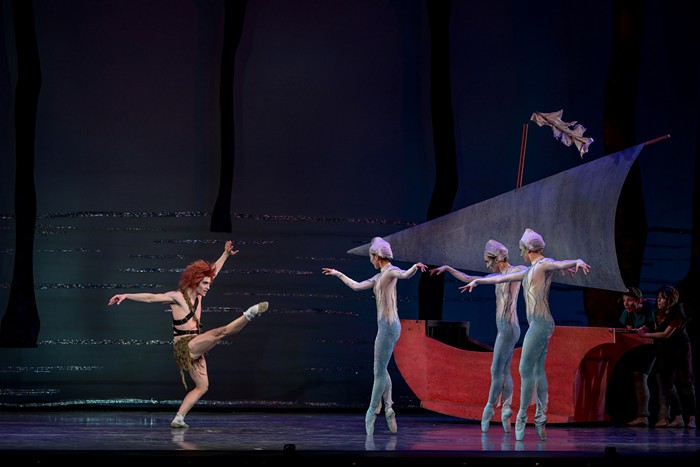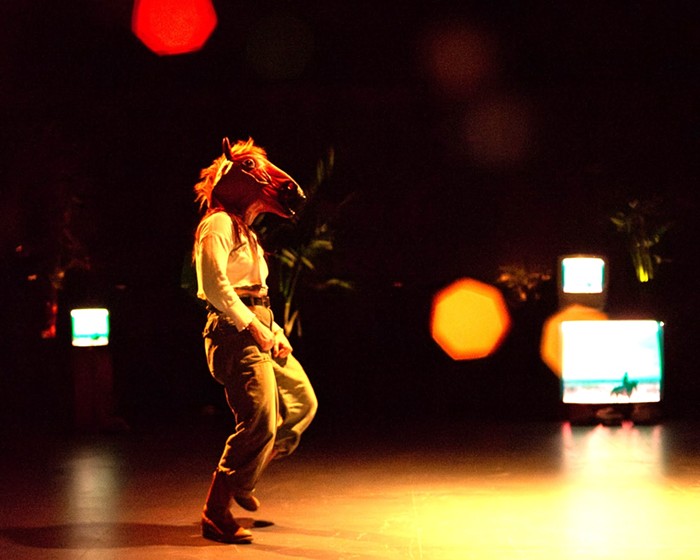Warner's, uh, heart is in the right place--she sees great suffering in the world and wants to do something about it--but in this case, making a play is not the right choice. Watching the one-woman performance is like stumbling on somebody play-acting in their bedroom--it's embarrassing, unintentionally funny and just kind of wrong.
The evening begins amid haphazardly placed prayer candles and a gurgling fountain, as the rubenesque Warner breaks from natal chanting and hysterically gives birth to a 30-foot red cloth, flashing us repeatedly in the process. As the night wears on, the stage becomes littered with emotional symbols--pearls of grief, bones, ash, shrouds of white fabric, rose petals... oh God, I can't go on.
Ms. Warner, obviously a disciple of mysticism and feminist poetry, uses these mediums to string together "scenes" of pantomime with incongruous text snatched from the Rumi or Mary Oliver. They're full of either cliche pain or ecstasy, and they usually end in painful death--she dies a lot. Warner has the tendency to talk faster and louder when nearing an emotional climax, of which there are no fewer than a dozen, planted like land mines throughout the evening.
Full of preachy and meaningless ceremony, Warner morphs self-serving, superfluous gestures into a mess of confusion, then titles it and charges people at the door. It's unclear why she feels so deeply and why she needs to tell us. It would help if the play were rooted even a little in the personal and Warner dropped the drama-queen image enough to let her audience into the work, instead of force-feeding them feeling from a can. ANNA SIMON


















